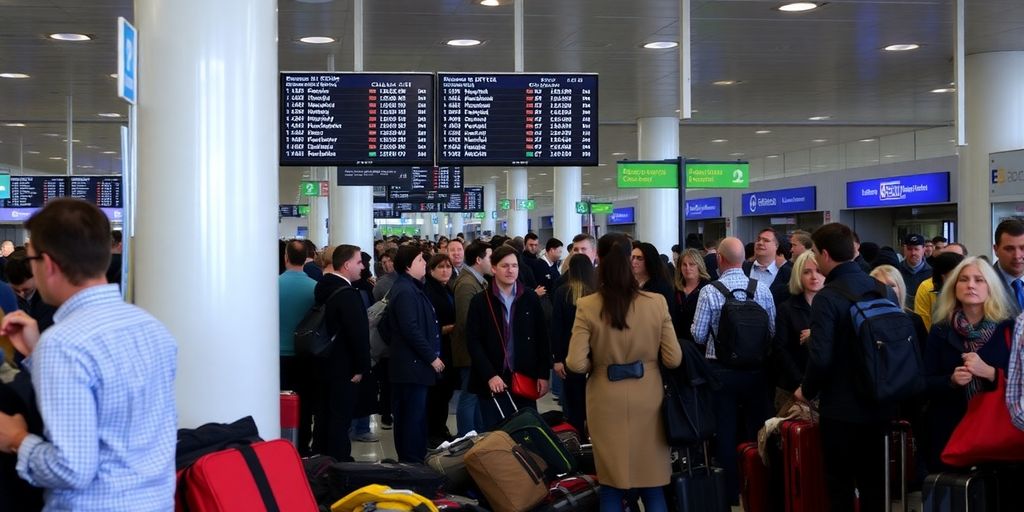A nationwide strike in Greece on April 9, 2025, brought the country to a standstill, halting flights, ferries, and public transport as thousands protested for higher wages amid a rising cost of living. The strike, organized by major labor unions, highlighted ongoing economic struggles despite recent growth.
Key Takeaways
- Nationwide strike led to the cancellation of flights and suspension of ferry services.
- Thousands protested in Athens, demanding wage increases and the restoration of collective bargaining rights.
- The strike reflects ongoing concerns over the cost of living and economic inequality in Greece.
Overview of the Strike
The 24-hour general strike was called by the General Confederation of Greek Workers (GSEE) and the Confederation of Public Servants (ADEDY), representing both public and private sector employees. Demonstrators gathered in Athens and other cities, voicing their frustrations over stagnant wages and the high cost of living.
Impact on Transportation
The strike had a significant impact on transportation across Greece:
- Flights: All commercial flights were canceled from midnight to midnight, affecting both domestic and international travel.
- Ferries: Ferries remained docked at ports, disrupting travel to the islands, a critical aspect of Greece’s tourism sector.
- Public Transport: In Athens, buses, trolleys, trains, and the subway operated only part-time, causing further inconvenience for commuters.
Economic Context
Despite emerging from a severe debt crisis that lasted from 2009 to 2018, many Greeks feel the economic recovery has not reached them. The government has increased the minimum wage by 35% to 880 euros since 2019, but inflation has outpaced these gains, leading to widespread discontent.
- Current Economic Indicators:
- Projected economic growth: 2.3% for 2025.
- Average gross salary: 1,342 euros, still 10% lower than in 2010.
- Purchasing power: Among the lowest in the EU, trailing behind countries like Portugal and Lithuania.
Voices from the Protest
Protesters expressed their frustrations clearly:
- Dina Gkogkaki, a private sector worker, stated, "The workers’ salary only gets us through the 10th or the 15th day of the month; it cannot cover basic needs."
- Dimitris Stamatis, a public school teacher, added, "Price increases are eating into our salaries. People can’t make ends meet. We want pay raises that reflect the reality we live in."
Government Response
The Greek government, while acknowledging the concerns of workers, has emphasized the need for fiscal prudence to manage the country’s debt, which remains the highest in the eurozone. Finance Minister Kyriakos Pierrakakis reiterated the government’s commitment to reducing taxes but did not commit to immediate wage increases.
Conclusion
The strike in Greece underscores the ongoing struggle between economic recovery and the realities faced by everyday citizens. As the country navigates its post-crisis landscape, the demands for fair wages and improved living conditions continue to resonate strongly among the populace. With the Easter holiday approaching, the impact of this strike is likely to be felt even more acutely in the tourism sector, a vital part of Greece’s economy.
Sources
- Thousands protest in Athens as strike over wages halts ships, planes and trains, Reuters.
- Greece strikes: Travel warning as cancel flights cancelled and trains at standstill, The Independent.
- Flights and ferries halted in Greece as unions call general strike, AP News.
- Strikes over cost-of-living crisis halt flights, ferries in Greece, Daily Sabah.






